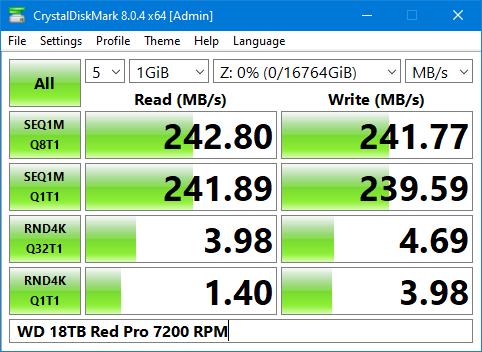Microsoft held its Xbox Games Showcase on Sunday and revealed that Bethesda’s first new IP in 25 years, Starfield, will require 125GB of SSD storage when it debuts on September 6th. It’s not a recommendation — it’s a minimum spec to play Starfield on a PC.
A single game isn’t a trend, but at the same time CD Projekt Red also revealed that it’s bumping the minimum specs of Cyberpunk 2077 to require an SSD at minimum and phasing out HDD support. While the system requirements change for Cyberpunk 2077 is related to the upcoming Phantom Liberty expansion that won’t ship on older HDD-powered Xbox One and PS4 consoles, the base PC game will be updated soon to this SSD minimum spec.
“One of the changes is the choice to stop supporting HDDs for the minimum requirements – SSDs offer faster loading times, improved streaming, and better overall performance when compared to HDDs,” explains CD Projekt Red in a blog post.
Cyberpunk 2077 won’t suddenly stop working on HDDs, but CD Projekt Red will discontinue active support and stop testing the game on HDDs so players could run into performance issues or bugs eventually.
https://www.theverge.com/2023/6/15/23761845/pc-games-ssd-minimum-specs-starfield-cyberpunk-2077
A single game isn’t a trend, but at the same time CD Projekt Red also revealed that it’s bumping the minimum specs of Cyberpunk 2077 to require an SSD at minimum and phasing out HDD support. While the system requirements change for Cyberpunk 2077 is related to the upcoming Phantom Liberty expansion that won’t ship on older HDD-powered Xbox One and PS4 consoles, the base PC game will be updated soon to this SSD minimum spec.
“One of the changes is the choice to stop supporting HDDs for the minimum requirements – SSDs offer faster loading times, improved streaming, and better overall performance when compared to HDDs,” explains CD Projekt Red in a blog post.
Cyberpunk 2077 won’t suddenly stop working on HDDs, but CD Projekt Red will discontinue active support and stop testing the game on HDDs so players could run into performance issues or bugs eventually.
https://www.theverge.com/2023/6/15/23761845/pc-games-ssd-minimum-specs-starfield-cyberpunk-2077
![[H]ard|Forum](/styles/hardforum/xenforo/logo_dark.png)

